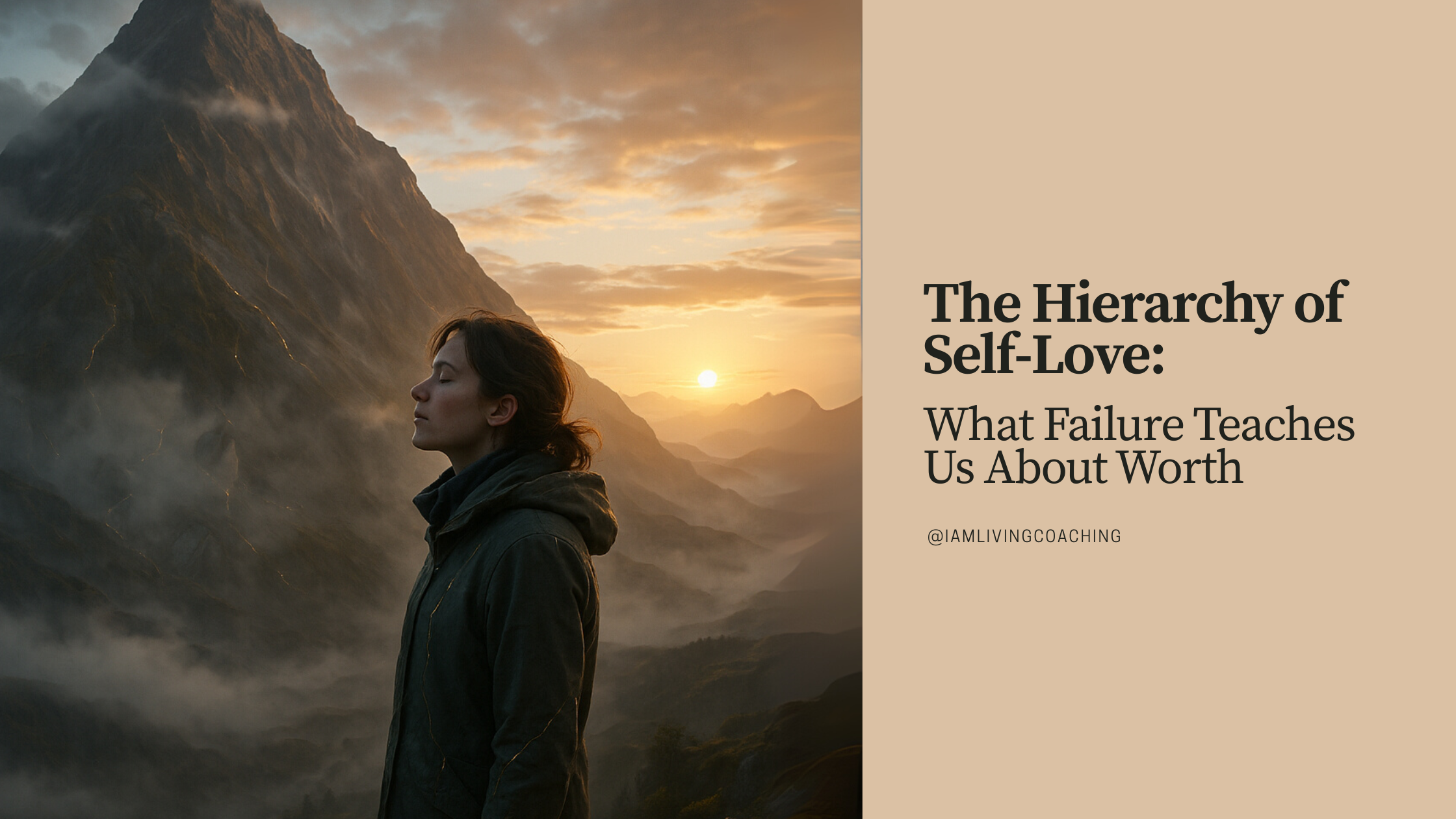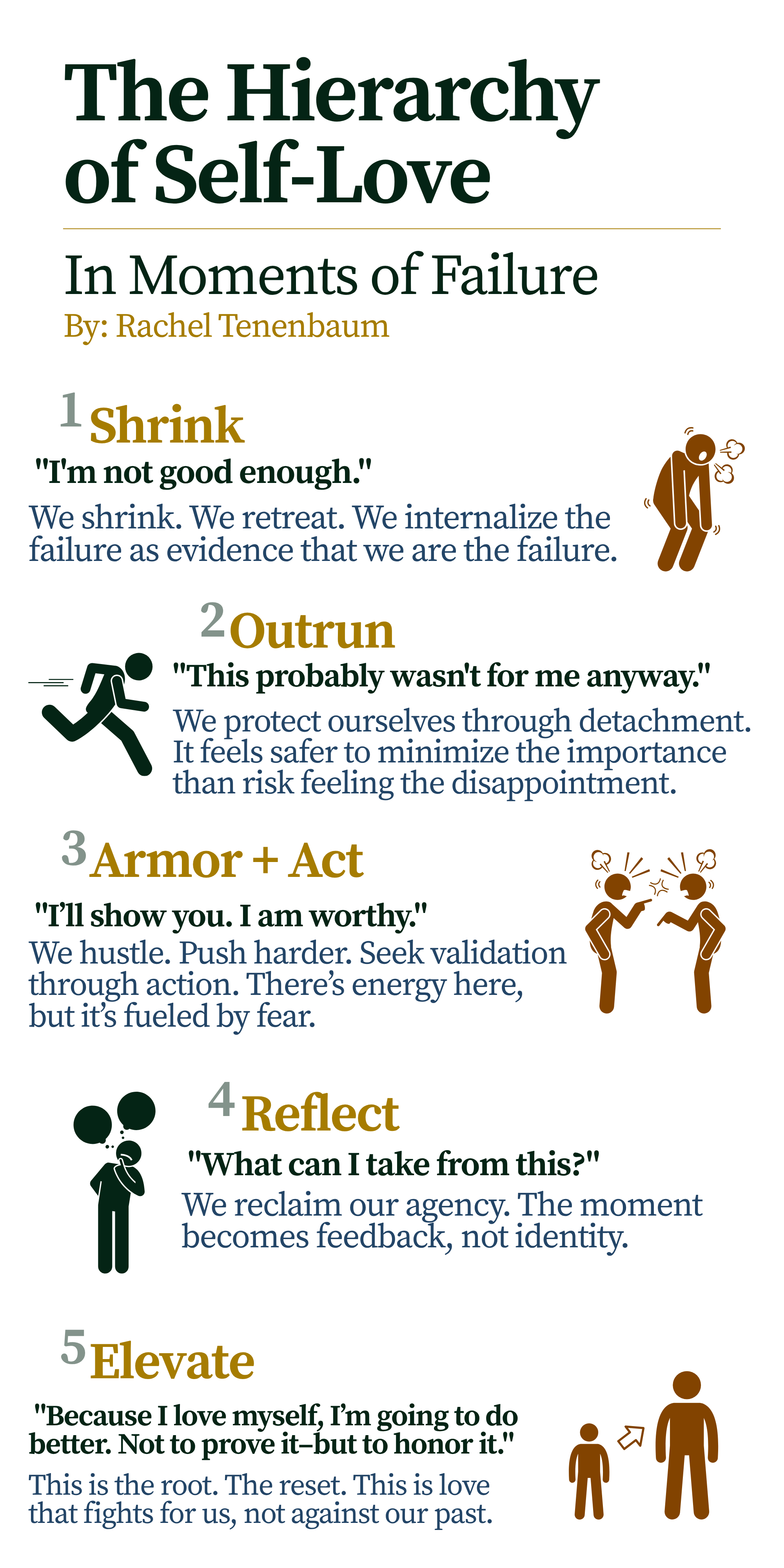The hierarchy of self-love: where do you stand?
Failure has a way of showing us exactly where we stand with ourselves.
Not where we stand with our resumes or our reputation–but with our own sense of worth. And that’s where the real story begins.
I recently experienced something that felt like failure. I won’t get into the specifics, because this isn’t really about the event. It’s about the response. About how I showed up after. And more importantly, how I used to show up before this work took root.
Years ago, failure would have gutted me. Even a few months ago, it might have sent me into overdrive–working hard to prove I was still worthy. Still good. Still valuable.
But this time, something different happened.
This time, I didn't collapse. I didn't scramble. I paused. I took a breath. And I asked myself: "What would it look like to stand up not to prove anything, but to honor everything I already know to be true about who I am?"
That’s self-love.
And it doesn’t always look like soft blankets and positive affirmations. Sometimes it looks like recalibrating your posture, dusting yourself off, and choosing to do better–not because you're not enough, but because you know you are.
It got me thinking: there’s a kind of hierarchy in how we respond to failure. A quiet map of how close (or far) we are from truly honoring ourselves.
Here’s what I’ve come to see:
Each level makes sense. Each one is human. Each one catches us at different times and I’ve lived them all.
But the more I work with leaders, teams, and the brilliant, beautiful humans in my world, the more I see that our ability to lead–and live–with clarity depends on what level we’re living from.
And this doesn’t just show up in big life moments. It shows up in everyday leadership and relationships:
When there's a disagreement with a colleague or direct report, if the underlying narrative is “I’m not good enough,” we might shrink back–or bulldoze forward to prove we’re right. Both responses can perpetuate disconnection, rather than invite clarity.
In family dynamics–where our deepest triggers often live–we might hear old stories in new moments. The question becomes: How would my highest self show up here? For me, that’s with warm strength. Boundaried. Present. Not defensive–because I don’t need to defend what’s unshakably true.
When we question our worth, our brain enters a stress state. The amygdala activates. Cortisol floods the system. Our perception narrows. Suddenly, everything feels like a threat–a test to pass, a performance to maintain.
But when we know our worth–when we choose to rise with love, not fear–the brain shifts. We open. Insight returns. Strategic thinking kicks back in. Creativity, connection, clarity–they all live here.
This month, I’m inviting you to notice:
When something doesn't go as planned, what part of you responds first?
Are you collapsing, avoiding, proving, learning–or rising?
And can you meet yourself there, without judgment?
Because every level has its place. But when you’re ready to rise–when you know it’s time–let that rise be an act of love, not survival.
You don’t have to prove it.
You just have to remember who you are.
And if this is something you want to do in community, I am excited to explore this topic further, in this week's Calm & Connect community conversation and Meditation ❤️.



